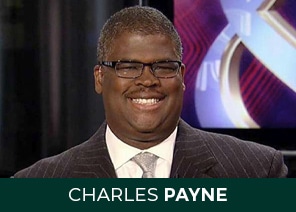Nearly half of men and 42% of women take Social Security at 62, the earliest possible age you can claim, according to the Center for Retirement Research. Just one-third of men and 27% of women wait until full retirement age, which, for many people right now is age sixty six and two months. Only 4% of men and 2% of women wait until age 70.

So, despite the opportunity to receive a higher future income in exchange for going without the money in the meantime, most individuals claim Social Security before the full retirement age, currently age 66 and two months.
Of the various ages retirees can file for benefits, age 62 is the most popular, by far according to Social Security statistics. While waiting can offer a higher future income in exchange for getting none of your money back from your working years for a while, there are legitimate reasons for both ideas: taking it right away, and delaying it for a while.

When you are deciding what is right for you, use thoughtful analysis rather than trying to figure out “what the next guy is doing.” The next guy’s situation may be nothing like yours.
One thing to be careful about: Most articles on delaying or not delaying Social Security are written by journalists in their 20s, 30s, or 40s. They may be intelligent and mean well, but they have no idea how it feels to retire and start drawing down on life savings. More important– they do not have a serious fiduciary duty in helping clients make smart money decisions that must last a lifetime.
I do.

Which is why I spend time analyzing my clients’ situations and producing several scenarios for them to choose from. There are good reasons to take Social Security early, and there are good reasons to delay Social Security. You need a sound, math-based strategy for when to start collecting Social Security benefits.
The decision to file for Social Security is a major one in the grand scheme of retirement. For those who have very little in the way of retirement savings, Social Security is unfortunately their only hope for retiring—along with being debt free.
Most people reading this blog, however, are in a different situation. They do have retirement savings of typically $300,000 to $5,000,000 or more. Social Security plays just as important a role for them because they paid heavily into the system and it is a form reliable pension-like income that is not correlated to markets or economies.
Until about 2034 or so. That is the year that both sides of the aisle, liberal and conservative, agree that the Social Security trust fund will fall to a zero balance. Without five or ten years of deficit reduction and budget balancing prior to 2034, all Social Security payments will have to come from FICA taxes being collected from workers at the time.

There are several problems with that reality.
1) There may not be enough FICA tax coming in. Workers are being replaced by robots. High tech consultants—like McKinsey Company and Gartner—are saying that we can expect forty percent of all jobs being done now by humans to be replaced by robots and computer software by 2025. Robots don’t pay FICA taxes. Unless new forms of high paying employment are created, the numbers don’t add up very well. Social Security recipients are seeing that writing on the wall and are tending to take Social Security sooner, rather than later.
2) Means testing could be enacted for those who have actually done things the right way and saved for thirty or forty years. It is doubtful that benefits will be cut for the needy and poor. But is not a big leap of imagination to envision a more socialist administration and Congress deciding a different fate for the so-called “rich.” (You could be considered rich if you have saved as little as $100,000 or have an income over $75,000.) Means testing will mean that those with a certain amount of income or assets or both, don’t “deserve” higher benefits.
3) We know that Congress will keep kicking the can down the road because of todays four year campaign cycles. Non one will have the political courage to do what’s right—and gaining a majority (60 votes)—on any issue will become next to impossible until we are within a year or two of going over Niagara Falls.

The latest projection for the demise of the Trust Fund doesn’t mean retirees will get nothing starting in 2034.However, it probably means the program will only have enough revenue coming in to pay 77% of promised benefits.
So if you were expecting to get $2,000 a month, your payout would shrink to $1,540. This look into the future is one reason why some people who don’t really need the money yet are still taking the money now, using the “bird in the hand” approach.
Young journalists tend to think you are silly if you believe Social Security will let you down. Those of us who have been around the horn a few times are more realistic. As I stated above, there is no set rule for when to take it, but you should never spend down your savings for five years, in order to get a few more dollars a month later on. Many people hold out for a higher income but in the meantime drain their net worth. I view that as silly.
For some people, filing for Social Security at 62 can be a wise move
One major reason why so many seniors rush to collect Social Security as early as possible is that they’re desperate for the money. For those with no savings whose health is beginning to fail, there is often no other choice.
Even if you’re still working at age 62, if a major expense comes your way that you can’t afford, you are probably better off using your Social Security benefits to pay for it rather than going into debt. Debt is the enemy in retirement.

Another reason you might file for Social Security as early as possible is that you just want to have more fun while you can enjoy it. During studies at Duke University, retirees who decided to take their benefits early cited the fact that they would rather get out and travel while they were still fit, rather than waiting until later when their bones were creaking. Hard to argue that one.
If you would like assistance in building out a complete and clear retirement income plan that includes Social Security planning, meet with a retirement income strategist. I happen to know one, if and when you are ready!

Steve Jurich is a Kiplinger Contributor, leading financial adviser, and Accredited Investment Fiduciary®. To contact, please visit IQWealth.com.











